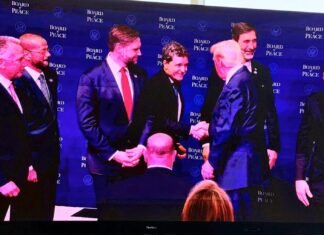In a recent statement, Bolojan addressed the topic of election cancellations, emphasizing that the primary responsibility does not lie with the secret services but rather with political leaders themselves. He expressed that if politicians had managed to maintain a level of trust among the electorate, the impacts of misinformation and anti-establishment voting could have been significantly mitigated.
Bolojan’s comments come amidst growing concerns regarding the declining trust in political institutions. He pointed out that the erosion of public confidence is largely attributable to political figures failing to engage effectively with the citizens they represent. According to him, when voters feel disconnected from the political process, they may turn to misinformation or embrace anti-system sentiments as a form of protest.
The implications of such sentiments can be profound, leading to decisions that undermine the democratic process, including the cancellation of elections. Bolojan’s argument highlights a critical reflection on responsibility within the political landscape. He suggests that politicians must reevaluate their roles and the way they communicate with constituents. Building and sustaining trust, he argues, should be a priority for all political leaders.
In discussing the ways to improve public perception, Bolojan indicated that transparency and accountability are essential. Politicians should focus on fostering open dialogues with their constituents and addressing their concerns directly. Only by doing so can they combat the growing tide of skepticism and disengagement that currently plagues many democracies.
Furthermore, Bolojan urged his fellow political leaders to be proactive in their efforts to counter misinformation. He noted that misinformation can spread rapidly in an age dominated by social media, where false narratives can easily take hold. He emphasized the need for a united front among political leaders to address these challenges collaboratively, rather than allowing divisive tactics to thrive.
Additionally, he reflected on the role that civic education plays in strengthening democratic values. By nurturing informed citizens who understand the electoral process and are equipped to critically evaluate information, the negative effects of anti-establishment sentiments could be significantly lessened. Bolojan believes that fostering a well-informed electorate is vital in reinforcing trust in political institutions.
In conclusion, Bolojan’s remarks serve as a wake-up call to political leaders. It is essential to recognize the connection between public trust and the stability of democratic processes. By prioritizing transparency, accountability, and civic education, politicians can work toward rebuilding the trust that is vital for a healthy democracy. Only through earnest engagement with the electorate can the cycle of misinformation and discontent be broken, ensuring a more robust and resilient political landscape for future elections. The path forward, as Bolojan sees it, requires a collective commitment from all political actors to restore faith in the democratic process, ultimately benefiting society as a whole.






